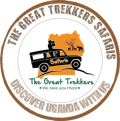Welcome to our travel tips page. Here you’ll find loads of useful info to help get you prepared before setting off your tip
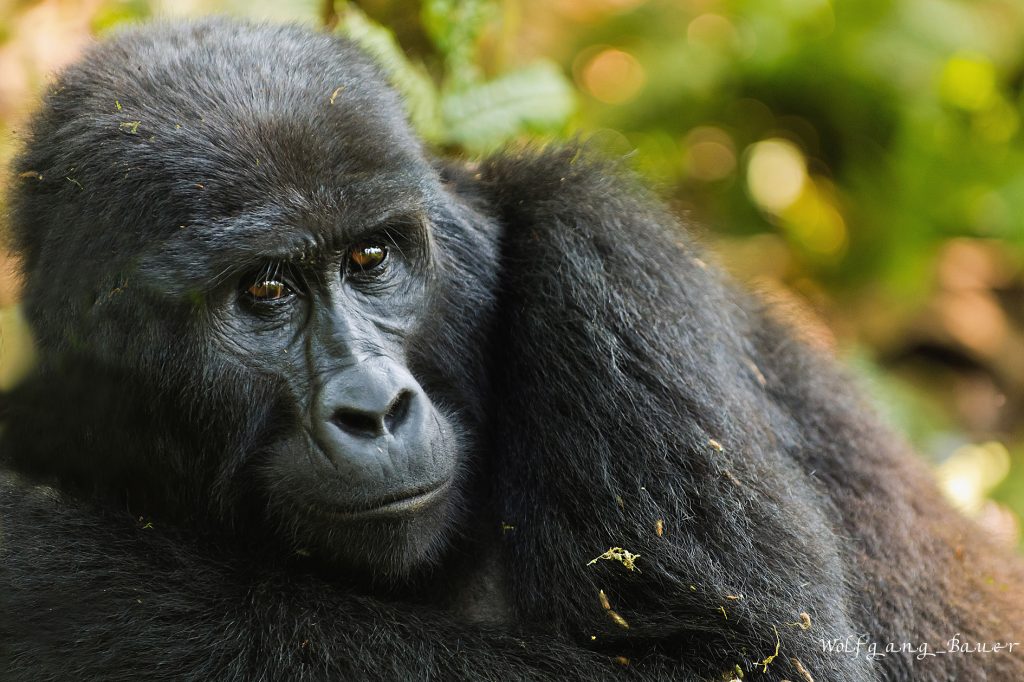
Remember that mountain gorillas are very susceptible to human diseases. The following rules are ways to minimize the risk your visit might poses to them:
- Respect the limits imposed on the number of visitors allowed with the gorillas each day. This minimizes the risk of disease transmission and stress to the group.
- If you are feeling ill, or you are carrying a contagious disease, volunteer to stay behind. An alternate visit will be arranged for you, or you will be refunded your money.
- If you feel the urge to cough or sneeze when you are near the gorillas, please turn your head away and cover your nose and mouth in order to minimize the spread of bacteria or viruses.
- Always stay 7 meters (21 feet) away from the gorillas. This is to protect them from catching human diseases.
- Do not leave any rubbish (eg. food wrappers) in the park; foreign items can harbor diseases or other contaminants.
- If you need to go to the toilet while in the forest, please ask the guide to dig you a hole with his panga. Make sure the hole is 30 cm deep and fill it in when you are finished.

- Wear comfortable hiking shoes suitable for steep muddy slopes.
- Put on ear plugs for those who feel uncomfortable with the jungle sounds.
- Carry a packed lunch and enough drinking water.
- Carry rain gear, sunscreen lotion, a hat (as the weather is unpredictable) and insect repellent.
- Bring a photo of film camera. Using flashlight is not permitted so we recommend using films of 400-800 ASA.
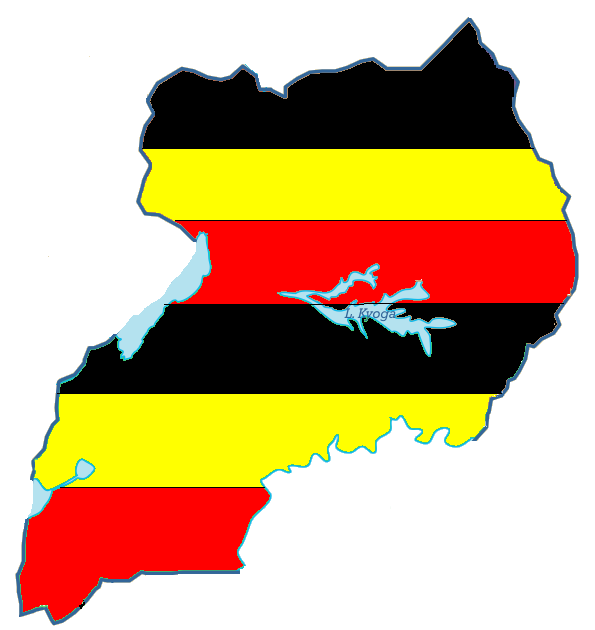
Getting to Uganda
Entebbe International Airport, which lies 40Km from the Capital, is serviced by a number of international airlines, including SN Brussels, British Airways, South African Airways, Kenya Airways, Air Tanzania, Rwandair Express, Egypt Air and Ethiopian Airlines. Uganda can also be reached overland from Kenya, Rwanda and Tanzania.
On Arrival in Uganda at Entebbe Airport
Customs and migration official are polite and efficient, and a visa for those who require one, can be purchased on the spot at Entebbe International Airport or at any overland border .Foreign Exchange and ATM facilities are available at the airport, which is also serviced by several shops and restaurants. Most mid-range to up market hotels in Kampala and Entebbe will arrange airport transfers by request, as will any tour operator based in or around the capital .Local time is GMT+3
Health requirements
A certificate of yellow fever vaccination is required. All visitors should take Malaria prophylactic drugs .It is advisable to drink bottled rather than tap water.

The unit of currency is the Uganda shillings (UGX). The US dollar is traditionally the hard currency of preference, but Euro and Pound Sterling are also widely accepted. Hard currency cash can be changed for local currency at banks and private bureau de change in all large towns, but traveler’s cheques are not widely accepted outside Kampala. Local currency can be drawn against Visa and other major credit cards at selected ATMs in Kampala, at Entebbe International Airport, and in a few other large towns.

Visiting Uganda can be done all year round, though mountain hikes, gorilla tracking and other forest walks are more challenging during the rainy seasons which generally peak over mid September to November and March to May.

Daytime temperatures are generally warm to hot, so bring lots of light clothing. Evenings are cooler, especially at high altitudes, so carry a couple of light sweaters too. Those who intend to hike on the mountains will be exposed to alpine temperatures and should pack accordingly .Solid walking shoes and sturdy clothing are ideal for forest walks .Don’t forget to bring a hat , sunglasses and a waterproof jacket.

A valid passport is mandatory, and visa requirements should be checked before you travel. To make the most of the game reserves and national parks, carry binoculars and field guides. Photographers will need a zoom lens for wildlife (70 – 300 or similar).Print film and developing is available in Kampala .Toiletries and other essentials can be bought in the cities.

Driving is on the left side in Uganda and the right side in Rwanda. Visitors without experience of African roads are advised to organize a vehicle with a driver rather than self – drive.

Tipping is not standard practice at local hotels and restaurants, but it will always be appreciated .It is normal to tip 5 – 10% at tourist oriented restaurants .Guides and drivers should always be tipped.
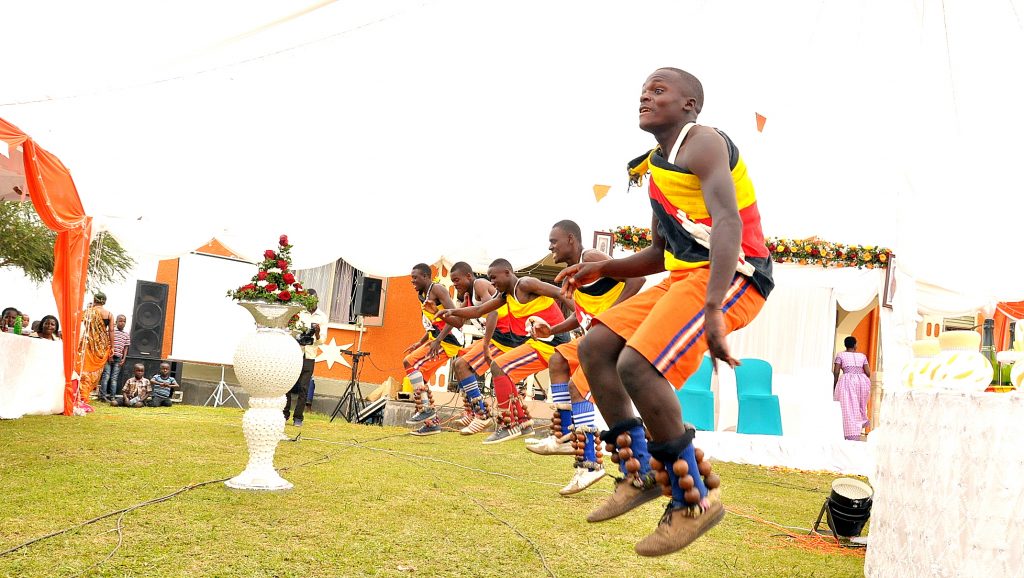
Tourist oriented hotels and restaurants serve good western style meals, while a wider range of cuisines being available in the capital and some larger towns. Local restaurants serve Ugandan dishes, typically ugali (a stiff maize porridge) or matooke (cooked banana) eaten with stew.
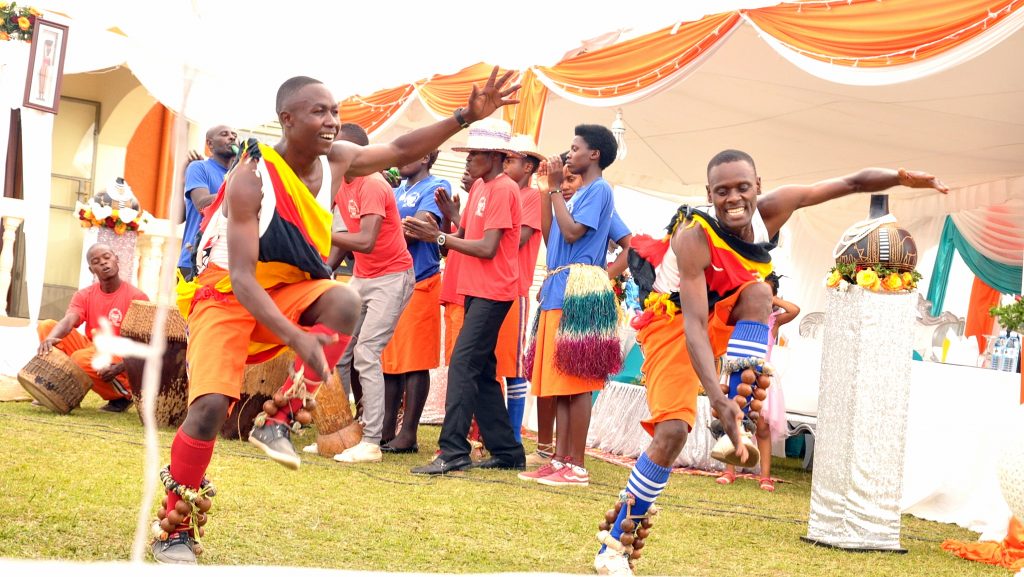
A wide selection of local handicrafts are available as souvenirs .These include musical instruments , such as the hide drums made in the vicinity of Mpigi , as well as excellent local basketwork, paintings, batiks and pottery.

Start with your holiday package by choosing a guided tour package. It’s the best way to travel with family because all the details are pre-planned for you. This is especially important if you are not keen on researching destinations yourself.
For those who do pre-plan, take some time to create a complete itinerary following some research on the destination you are visiting. Pay special attention to special festivals, weather, and political climate when you are working on the itinerary. This provides space for back up plans in case of unforeseen travel problems.
The itinerary also ensures that everything is planned based on what you/ your family wants to see and experience. Just make sure all the activities are something worth trying and gives you and your fellow travellers a new dimension of the places visited.
If you are travelling on a budget then you should plan with flight, ground arrangements, passport, visa, meals, transport, shopping and contingency cash for emergency.

Make sure you apply for vacation days which include a day’s rest after your return to cope with fatigue or jet lag if you’re flying. Furthermore ensure all your travel documents are confirmed 3-4 working days before the travel date to ensure any last minute changes can still be accommodated.
As for packing, it is essential to pack what you need with consideration for the shopping you plan to do at your holiday destination. If you’re travelling with family and kids, ensure the needs of the elders and children are itemized and packed to avoid discomfort or tantrums.
Most importantly, it is vital to inform your close relatives/ friends of your travel. It would be good to arrange for house/ pet sitting while you’re away. Lastly, call your bank and let them know that you are travelling and there will be large amount of purchases with the debit or credit card.

You should be up to date on routine vaccinations while travelling to any destination. Some vaccines may also be required for travel. These vaccines include measles-mumps-rubella (MMR) vaccine, diphtheria-tetanus-pertussis vaccine, varicella (chickenpox) vaccine, polio vaccine, and your yearly flu shot. Latest updates on vaccinations can be obtained from your local clinic or hospital.

Please take note that visa requirements for certain countries may change from time to time. It is advisable that you check with your travel agent or directly with destination country’s Embassy or High Commission in Malaysia before booking a holiday.

What sort of protection/coverage does a travel insurance covers you? Some of the coverage that you should expect is as below:
- Personal Accident
- Medical Expenses
- Loss of Luggage & Personal Effect
- Loss of Travel Documents
- Baggage Delay
- Travel Delay
- Missed Departure
- Flight Overbooked
- Hijack Inconvenience
- Travel Cancellation
- Loss of Money/ Valuables
….and other types of coverage as well.
Here are other examples that might NOT be covered in travel insurance:
- Declared or undeclared war or any act of war, invasion, act of foreign enemy, and other war terms
- Loss or destruction of goods due to radiation
- Suicide/Self harm/ or any intentional acts by the insured person that provoked homicide or assault personnel or military personnel of any country or international authority, whether full-time service or as a volunteer
- The Insured Person engaging in, practising for or taking part in training in any speed contest, any professional competition or sports, and participating in Hazardous adventure
For more information on the inclusions & exclusions of travel insurance coverage, contact your travel agent.

On your travel day, make a list of the things that you need to bring along- luggage, passport and tickets. Also, mark all your bags inside and out with your name and address – both home address and your holiday address. To be on the safe side, weigh your bags to ensure you don’t exceed the baggage requirements of the airline. Travel insurance is becoming a must, so do consider getting one because you do not have to worry if your bags are lost or if your flight has been cancelled or even if your passport and wallet is stolen. It is always best to get yourself and your family covered as mishaps do happen when travelling.
You do know that it is possible to travel with hand-luggage only, rite? Just that you will need to know the airline rules for carrying liquids, otherwise you may have to remove them at the security checkpoint! In order to handle jet lags, stay hydrated by drinking lots of plain water during the flight. Avoid tea and coffee.

Gather required documents before your flight as you are responsible to present as required, documents by the relevant authorities at all entry and exit lanes, health and other documents required by law, regulations, order, demands or requirements of the countries flown from, into or over.
Self-check-in is free, simple & quick! It will save your time at airport! Otherwise, counter check-in opens 3 hours before the scheduled time of departure and closes 1 hour before the scheduled time of departure. Note: Check-in deadlines may vary at different airports and for particular flights. Airport has long queues due to complex security checks. We suggest that you check-in early and proceed immediately to the departure gate or you may risk being left behind in security.
Pre-book your checked baggage to save money and time. Each piece/item of checked baggage has to weigh less than 30kg. Guests may not combine their checked baggage weight with other guests unless travelling in the same booking.
For, baggage drop counter, it opens 3 hours before the scheduled time of departure and closes 45 minutes before the scheduled time of departure. Guests are required to hold a boarding pass to use our baggage drop counters.
Bringing liquids are subject to the prevalent applicable local laws and regulations guests may take liquids on board in their cabin baggage with a maximum volume of 100 ml. The items must be placed in a transparent, re-sealable plastic bag.
For boarding time, guests are required to be at the boarding gate at least 20 minutes before the scheduled time of departure or you will be denied boarding.

- Ensure you have a reliable GPS system and location maps in the car. Sometimes, you can’t rely totally on GPS and the local location maps come in handy.
- Pack enough liquids/water and snacks in the car as some stretches are long and do not have halfway stops.
- Try to reach your destination before dark as most stretches are either forests or farms where street lights are minimal in the countryside.
- Plan some games, pack short story books or sing along rhymes if you travel with kids.
- Umbrellas are great in case there are light drizzles or rain.
- Always ensure your tank is full and refill before it reaches quarter tank as it is not easy to find another petrol station nearby. You never know if you have gotten on the wrong track/trail or got lost.
- Buy insurance coverage for the driver and passengers.

When you are overseas/ holiday destination, do call your close relatives/ friends to let them know you have arrived safely and keep them updated of where you are if you are moving around. Make sure to always keep your luggage locked when leaving them behind in the hotel. Carry your passport with you and ensure you don’t carry excessive cash that might attract attention. If you are taking a self drive holiday, make sure you collect the car from the airport and get a GPS.
When you are abroad and if you want to try something local, make sure it is a recommendation from a trustworthy source. To make life easier, get a local map and identify the tourist info centres. Moreover for safety precautions, avoid walking alone at night or in dark areas and beware of pickpockets whose modus operandi is by distracting you. Also, if you drive, follow the local traffic rules and avoid driving at night.
Before your return flight, do confirm your flight details in case of delays or cancellations. It is best to ensure that you have all travel documents prepared and easily accessible for check in. Always plan your packing and don’t do too much last minute shopping that can’t fit your luggage. Keep track with the luggage requirements of the country you’re visiting in mind.
Do not forget to remind your close relatives/ friends of your return and make arrangements for an airport pick up. Keep track of all your valuables and make sure that they are in your hand- wallet, passport, camera, watch, jewellery.
Last but not least, make sure you are at the airport two hours (or 3-4 hours in some countries) earlier to avoid missing the flight.

